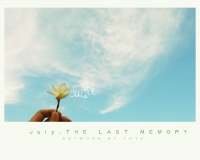| Multiple poems at a time |
QI YUE
七月
Bin Feng
In the seventh month, the Fire Star passes the meridian;
In the 9th month, clothes are given out.
In the days of [our] first month, the wind blows cold;
In the days of [our] second, the air is cold; --
Without the clothes and garments of hair,
How could we get to the end of the year?
In the days of [our] third month, they take their ploughs in hand;
In the days of [our] fourth, they take their way to the fields.
Along with my wife and children,
I carry food to them in those south-lying acres.
The surveyor of the fields comes, and is glad.
In the seventh month, the Fire Star passes the meridian;
In the ninth month, clothes are given out.
With the spring days the warmth begins,
And the oriole utters its song.
The young women take their deep baskets,
And go along the small paths,
Looking for the tender [leaves of the] mulberry trees.
As the spring days lengthen out,
They gather in crowds the white southernwood.
That young lady"s heart is wounded with sadness,
For she will [soon] be going with one of our princess as his wife.
In the seventh month, the Fire Star passes the meridian;
In the eighth month are the sedges and reeds.
In the silkworm month they strip the mulberry branches of their leaves,
And take their axes and hatchets,
To lop off those that are distant and high;
Only stripping the young trees of their leaves.
In the seventh month, the shrike is heard;
In the eighth month, they begin their spinning; --
They make dark fabrics and yellow.
Our red manufacture is very brilliant,
It is for the lower robes of our young princes.
In the fourth month, the Small grass is in seed.
In the fifth, the cicada gives out its note.
In the eighth, they reap.
In the tenth, the leaves fall.
In the days of [our] first month, they go after badgers,
And take foxes and wild cats,
To make furs for our young princes.
In the days of [our] second month, they have a general hunt,
And proceed to keep up the exercises of war.
The boars of one year are for themselves;
Those of three years are for our prince.
In the fifth month, the locust moves its legs;
In the sixth month, the spinner sounds its wings.
In the seventh month, in the fields;
In the eighth month, under the eaves;
In the ninth month, about the doors;
In the tenth month, the cricket
Enters under our beds.
Chinks are filled up, and rats are smoked out;
The windows that face [the north] are stopped up;
And the doors are plastered.
" Ah! our wives and children,
" Changing the year requires this:
Enter here and dwell. "
In the sixth month they eat the sparrow-plums and grapes;
In the seventh, they cook the Kui and pulse,
In the eighth, they knock down the dates;
In the tenth, they reap the rice;
And make the spirits for the spring,
For the benefit of the bushy eyebrows.
In the seventh month, they eat the melons;
In the eighth, they cut down the bottle-gourds;
In the ninth, they gather the hemp-seed;
They gather the sowthistle and make firewood of the Fetid tree;
To feed our husbandmen.
In the ninth month, they prepare the vegetable gardens for their stacks,
And in the tenth they convey the sheaves to them;
The millets, both the early sown and the late,
With other grain, the hemp, the pulse, and the wheat.
" O my husbandmen,
Our harvest is all collected.
Let us go to the town, and be at work on our houses.
In the day time collect the grass,
And at night twist it into ropes;
Then get up quickly on our roofs; --
We shall have to recommence our sowing. "
In the days of [our] second month, they hew out the ice with harmonious blows;
And in those of [our] third month, they convey it to the ice-houses,
[Which they open] in those of the fourth, early in the morning,
Having offered in sacrifice a lamb with scallions.
In the ninth month, it is cold, with frost;
In the tenth month, they sweep clean their stack-sites.
The two bottles of spirits are enjoyed,
And they say, " Let us kill our lambs and sheep,
And go to the hall of our prince,
There raise the cup of rhinoceros horn,
And wish him long life, -- that he may live for ever. "
Translator: James Legge
【Collections】诗经
【Source】 The English translation text was taken from The Chinese Classics, vol. 4 by James Legge (1898) and checked against a reprinted edition by Wen Zhi Zhe chu pan she (Taiwan, 1971). Transliteration of Chinese names in the English translation were converted to
